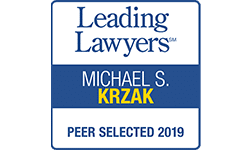Subtle Signs of Nursing Home Abuse or Neglect

Nursing homes are entrusted with the care of some of society’s most vulnerable individuals. Yet, while most facilities provide compassionate care, abuse and neglect unfortunately still occur.
In fact, the World Health Organization (WHO) reports that 2 in 3 nursing homes and long-term care facility staff admit that they’ve committed some form of elder abuse in the past year. Recognizing the subtle signs of nursing home abuse or neglect is crucial for protecting the well-being of residents.
Abusive and Neglectful Treatment in Nursing Homes
Abuse encompasses various forms of mistreatment, including physical, emotional, sexual, and financial abuse, as well as neglect.
Neglect occurs when caregivers fail to meet residents’ basic needs for food, hygiene, medical care, and safety. Identifying signs of abuse or neglect can be challenging, as they may be subtle or easily overlooked.
- Physical Signs: Someone who is being physically abused or neglected may have unexplained bruises, cuts, or fractures, especially if they occur repeatedly or in unusual locations. Bedsores, also known as pressure ulcers, are another common indicator of neglect, suggesting inadequate repositioning or lack of proper care. Sudden changes in weight, hygiene, or mobility may be signs of neglect and require further investigation, as well.
- Emotional and Behavioral Signs: Emotionally abusive treatment can leave long-lasting scars on residents’ mental well-being. Signs of emotional abuse or distress may manifest as sudden mood changes, withdrawal from previously enjoyed activities, or sudden fear or anxiety around certain staff members. Residents may also exhibit physical behaviors such as rocking, mumbling, or refusing to communicate, all of which can indicate psychological trauma.
- Financial Signs: Financial exploitation is a prevalent form of abuse. Perpetrators often target elderly residents with limited financial literacy or cognitive impairments. According to the National Council on Aging, “the annual loss by elderly victims of financial abuse is estimated to be at least $36.5 billion.” Warning signs of this can include unexplained withdrawals from bank accounts, missing personal belongings or valuables, and unexplained changes to legal documents such as wills or powers of attorney.
- Environmental Indicators: The physical environment of a care facility can also offer clues about the quality of care provided. Signs of neglect may include unsanitary living conditions, such as soiled bedding, foul odors, or inadequate pest control. Maintenance issues like broken equipment or furniture, malfunctioning heating or cooling systems, or poor lighting can also compromise residents’ safety and well-being.
- Staff Behavior: Observing interactions between staff and residents can also provide insights into the quality of care being provided. Signs of potential abuse or neglect may include staff members exhibiting disrespectful or dismissive attitudes toward residents, ignoring call lights or requests for assistance, or displaying aggressive behavior. High staff turnover rates or frequent staffing shortages may also indicate underlying issues within the facility.
- Medical and Medication Management Errors in medical care or medication management can have serious consequences for residents’ health and safety. Signs of inadequate medical care may include delays in administering medications or treatments, missed medical appointments, or lack of follow-up on residents’ health concerns. Residents may also experience adverse reactions to medications due to improper dosage or administration.
Steps To Take If You’re Concerned Your Loved One Is Being Abused or Neglected
If you suspect that a loved one is experiencing abuse or neglect in a nursing home, it’s essential to take immediate action to ensure their safety and well-being.
Start by documenting any concerning signs or incidents, including dates, times, and descriptions of observed behaviors or injuries. Contact the nursing home administration to voice your concerns and request an investigation into the matter.
The Illinois Department of Public Health operates a Central Complaint Registry to record and investigate complaints regarding nursing facilities, hospitals, and home health agencies and offers a File a Health Care Complaint online tool.
Seeking Legal Help
Nursing home abuse attorneys specialize in advocating for victims of mistreatment in nursing home facilities. These legal professionals have expertise in navigating complex legal frameworks and pursuing justice on behalf of abused or neglected residents.
They can provide invaluable support and representation to victims and their families, helping them understand their rights, evaluate their legal options, and pursue compensation for damages incurred due to abuse or neglect.
By seeking legal representation from a qualified and compassionate lawyer, victims of nursing home abuse can pursue justice and obtain the compensation they deserve for the harm they’ve endured.
The Illinois Department of Public Health also publishes a quarterly report of facilities that have been determined to be in violation of the Nursing Home Care Act or have been recommended for decertification.
Recognizing the subtle signs of nursing home abuse or neglect is critical for protecting the rights and dignity of elderly residents. By staying vigilant and advocating for residents’ rights, families can help ensure that nursing home facilities uphold high standards of care and accountability.
If you have questions about elder abuse or nursing home laws in Illinois or suspect that a loved one is experiencing abuse, we’re here at Schweickert Ganassin Krzak Rundio, LLP, to answer your questions and help you seek justice.
No individual should have to endure mistreatment or neglect in their golden years, and it’s our collective responsibility to safeguard the well-being of our elders.








